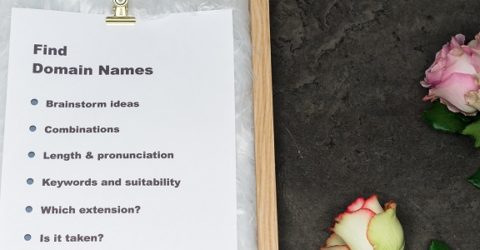Who are ICANN, and what do they do?
If you’re not sure who are ICANN, you’re not alone. This internet gatekeeper has a surprisingly low profile considering its responsibilities

In the absence of a regulator, free markets generally descend into chaos.
Anyone who’s followed the cryptocurrency market in recent years will understand why a degree of regulatory oversight is essential for things to run smoothly.
Without the World Wide Web Consortium, the internet wouldn’t have clearly defined global standards in areas like the HTML5 web browser language.
And without the Internet Corporation for Assigned Names and Numbers, it would be very difficult to register a domain name and find a home for a new website.
But who are ICANN? What do they do? And why do we need them?
Yes ICANN
Until 1998, buying the domain names which allow people to launch a website was a fraught and difficult process.
Domain name ownership was a free-for-all, with speculators snapping up thousands of domains at once and then immediately trying to resell them at vast profit.
If a Chinese speculator acquired websites featuring the name of your business, you could only acquire that domain name by paying whatever fee was being quoted.
This was clearly unfair, since a Chinese speculator would have no need for a website address like www.johnsmithandson.co.uk.
MoreIs my broadband tax-deductible?
Domain availability issues were compounded by the lack of choice regarding top level domains – the final part of a website’s address. Ours here at BroadbandDeals is co.uk.
Every country had its own country code TLD (.de for Germany, .ca for Canada), but there were very few generic TLDs (such as .org for organisations, or .edu for educational institutions).
ICANN emerged into an online world which was expanding rapidly with very little discipline.
As a global non-profit partnership, it was free of bias or favouritism. Its mission statement was to help keep the internet secure, stable and fully compatible.
But how has this noble (if lofty) aim been achieved?
A fair deal
ICANN is responsible for ensuring every computer and website on the internet has a unique identifier, and can be found consistently from any point on this global network.
It’s a concept known as universal resolvability.
ICANN set about introducing an online database of domain ownership, enabling everyone to see who had acquired which web addresses.
They rolled out a registration process, whereby only authorised and reputable sellers were able to sell domain names to legitimate purchasers.
(A company in China couldn’t easily purchase a co.uk domain name any longer).
They took responsibility for ensuring every domain name is unique, coordinating how the IP addresses which underpin domain names are supplied and managed.
Most importantly, they began developing other gTLDs to join the handful of existing domains like .com and .org.
This has led to a choice of over 1,500 gTLDs in today’s domain marketplace.
If a speculator wanted to buy domain names to extort John Smith and Son into paying a premium, they’d have to register a huge number of domains.
This diversity also ensures websites can be distinguished by region (.cymru), industry (.motorcycles), pastime (.rugby), or simply an indication of what visitors might expect (.fun).
Needless to say, some of these gTLDs are more popular than others, while some have become widely abused – used for spamming, or hosting websites full of low-quality content.
What don’t they do?
Having established who are ICANN, it’s equally important to establish who they aren’t, what they don’t, and why they can’t.
ICANN regulates domain ownership, but not the content provided. It can’t help the fact some of the gTLDs it developed are now regarded as spammy and undesirable.
It doesn’t help people access the internet itself – you need an ISP for that.
Nor is it a snooper’s charter, since it’s possible to substitute your name with a proxy on the global WHOIS registry of domain ownership.
MoreIs Zoom really safe to use?
ICANN can’t police online security, though it does represent organisations who do – antivirus software developers, hardware manufacturers, etc.
Finally, it can’t change something on a whim, or without proper scrutiny.
Suggested changes are discussed internally, submitted for public review twice, and then voted on by a 21-member board chosen by an independent nominating committee.
This prevents one business (or anyone with a vested interest) unduly influencing the future direction of the internet.






